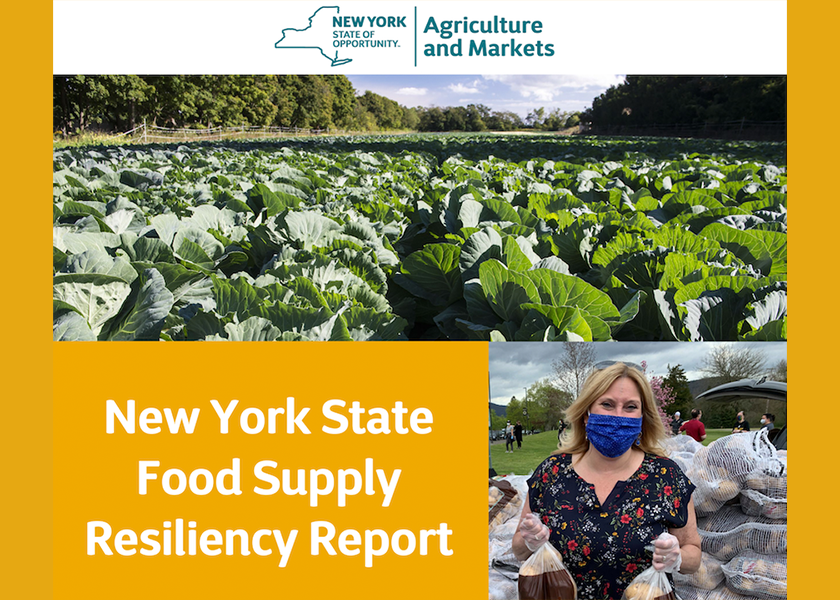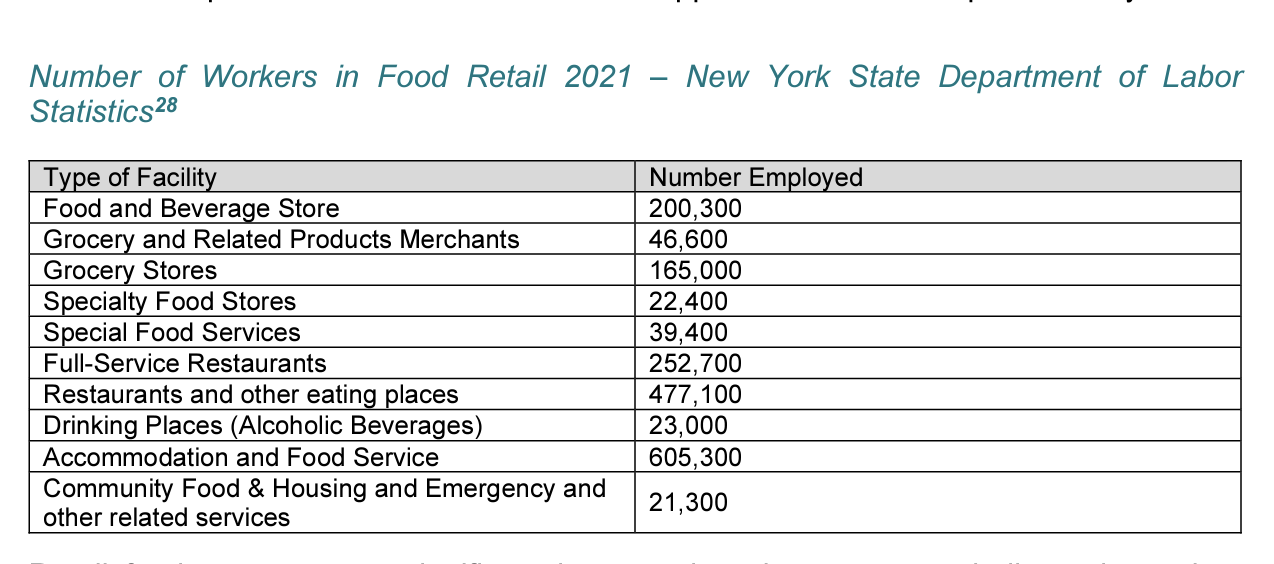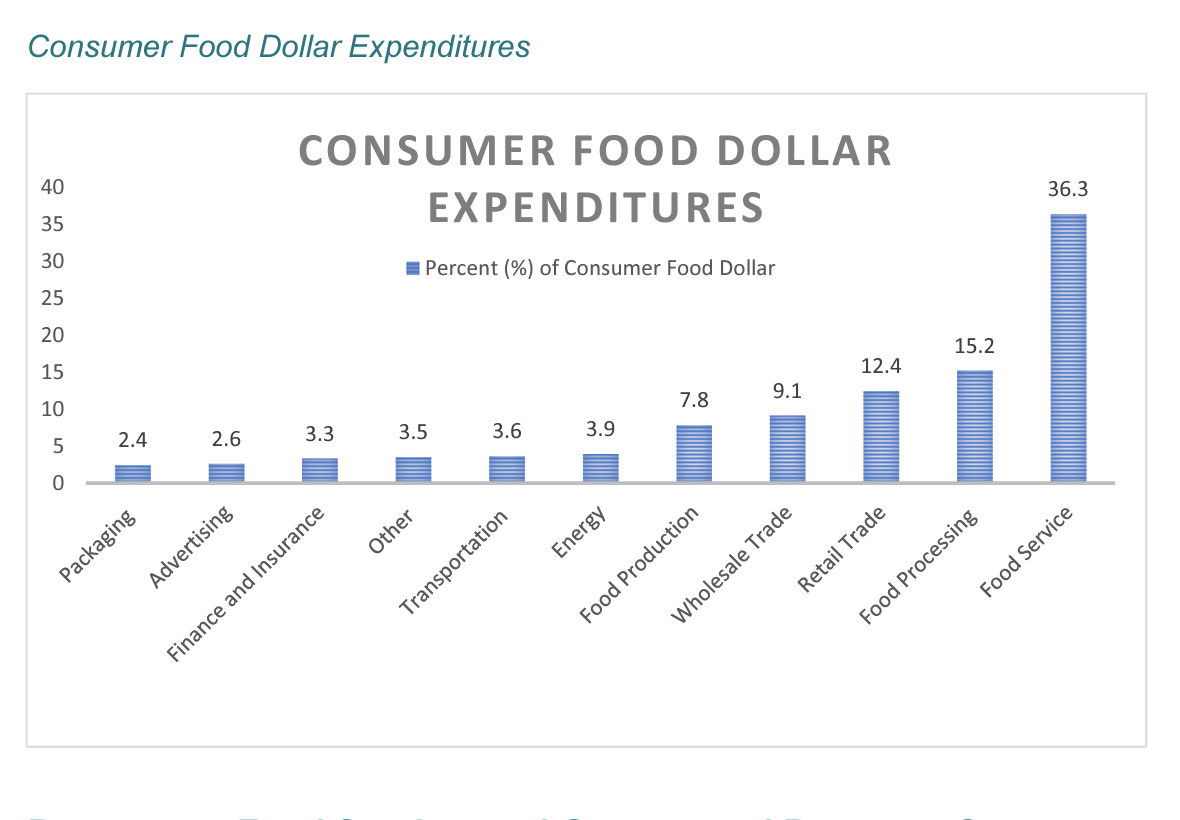New York group provides solutions for food-supply resiliency

While New York alone can’t solve supply chain disruptions caused by global shipping delays, the state can adopt policies and make investments that help grow the local farm and food system, said Benjamin Z. Houlton, dean of the Cornell College of Agriculture and Life Sciences.
Houlton’s thoughts were part of a 42-page report that state Agriculture Commissioner Richard Ball provided Jan. 26, from the New York Food Supply Working Group, according to a news release.
Starting in March 2021, the Working Group collaborated to provide recommendations for improving the resiliency and self-reliance of the state’s farm and food supply chain.
“While consumers were shocked and horrified by early images of the pandemic of farmers discarding fresh vegetables, fruits and dairy products while consumers were going hungry, New York acted quickly to establish the highly successful Nourish NY program that helped reduce food insecurity as well as supply-and-demand imbalance,” Houlton said in the report.
Threats to the food supply will likely happen again.
“New York can — and should be — more prepared for the very real possibility of food system disruptions in the future caused by a warming climate and related disasters. We have a responsibility to strengthen system coordination, assist local farmers and invest in science-based research and innovation infrastructure,” Houlton said in the report. “Let’s ensure that New York can create a future food system with more localized food supply chains supplied by vibrant and economically healthy farms.”
Learn how Walmart is getting into the locally grown game:
Walmart invests in indoor, vertical grower Plenty.
The Working Group is comprised of New York State Council on Hunger and Food Policy members; farmers; representatives from the Department of Agriculture and Markets, Empire State Development, and Cornell University; and other institutional and industry stakeholders.

Grocery retail sales rose significantly, yet retailers were challenged to adapt their operations to ensure the health and safety of its workforce and customers, including protocols such as social distancing, mask-wearing, ongoing cleaning and disinfecting, the report said.
Retail food stores also saw online grocery purchases more than double in May 2020, compared to pre-COVID-19, according to a Cornell study.
“This behavioral shift is worth noting and may continue as a new norm post-COVID,” the report said.
However, online grocery shopping dropped nationwide, detailed in this article: Supermarket online sales down in 2021 from 2020.
Having a strong, local food system became critical in the early months of the COVID-19 pandemic, Ball said in the release.
“As we saw a need for greater resiliency and flexibility in our food system statewide, it became clear that this was an issue that called for thorough, thoughtful examination,” he said.
The final report outlines recommendations in 12 major areas, including:
- Strengthening coordination between local, state, federal, and private stakeholders;
- Developing urban agriculture and focusing on food justice;
- Strengthening and reimagining existing food availability programs;
- Embedding equity into New York’s farm and food system; and
- Ensuring labor availability and immigration reform.
Education on where the consumer food dollar is spent helped inform the report's solutions too.

The New York State Food Supply Resiliency Report is available online in a downloadable PDF format.
The Working Group asked for public comment on several issues in spring 2021 for the final report:
- Loss of markets for farmers, processors and handlers;
- Farm-to-consumer direct marketing opportunities and changes;
- Worker safety;
- Food chain roadblocks, limitations and disruptions;
- Food shortages and the implications to food insecure individuals and families and emergency food providers;
- Changes in consumer purchases, grocery store demand and supply chain disruptions;
- Disruptions to the food service industry and restaurants; and
- Prevention of food waste.
While preparing the report, the Working Group considered the need to strengthen food supply chain logistics, to prevent food shortages and food waste, and to overcome hurdles involved in getting farm products to markets and consumers, according to the release. It also focused on the need for changes to, and development of, new state and federal laws, rules, policies, programs, and incentives to improve the state food supply in a manner that benefits New York farms, food businesses, workers, retailers, restaurants, food banks and consumers.
Related news: Retailers reveal expectations on prices, supply chain issues in 2022







